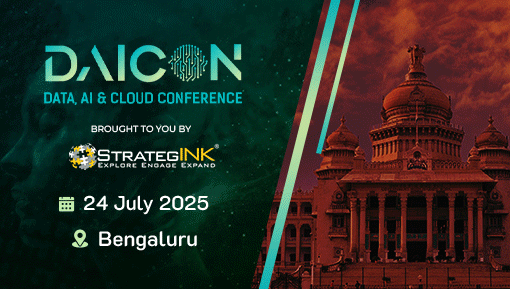
In the dynamic landscape of insurance, the evolution of personalized insurance products is significantly influenced by the power of data. Today, insurers rely on data-driven insights to redefine coverage, tailoring policies to individual needs. In this article, Niranjan Nilekani a seasoned professional in the field of Data Science and Analytics, currently serving as the Senior Assistant Vice President at ICICI Lombard delves into the crucial role data plays in shaping these personalized products, and explores the measures insurers take to ensure data security and privacy. With a rich career spanning 12 years in the analytics industry, he also examines how personalized insurance products can incentivize positive behavioral changes among policyholders.
Q. What role does data play in shaping personalized insurance products today?
Data plays a pivotal role in building personalized insurance products. In India, general insurance penetration rate as of 2022 is around 1% and one of the main reasons for such low penetration is lack of personalized products for Indian consumers. Most of the motor and health insurance products available are generic and lack that USP. But with the advent of cloud and infrastructure migration from on premises to cloud, many insurance companies are exploring alternative data solutions and are also partnering with various new age fintech and ecommerce companies to build personalized products. Many insurance companies are also on verge to upgrade to AI/ML based retention, cross sell/up sell models with alternative data such as bureau data, IIB data, google analytics, location affluence data and develop product recommendation engines to curate personalized insurance products.
Q. How do insurers ensure data security and privacy while collecting personal information for tailored coverage?
With hyper personalization boom there comes a responsibility of data security and data protection. To successfully rollout tailored coverage and products there must be a strong pipeline of AI/ML models and APIs exposed within digital platforms which collect the non-policy data and then score the same for recommendation. This end-to-end system needs data which are highly classified and fall under PII. All data protection guidelines such as encryption, vulnerability scanning, access controls must be strictly adhered to. Also, regular risk assessment of the cloud-based platform needs to be conducted as most of the scoring happens real-time.
Q. How can personalized insurance products encourage positive behavioural changes among policyholders?
Insurance is basically a push product and has very low lead conversion rate among all general insurance companies. Companies are now innovating new ways to sell insurance products such as gamification, incentive-based buying, seamless buying and claims journey thru app. This will help insurance companies engage customers as more and more consumers are becoming tech savvy.
New products such as pay as you drive in motor insurance, wellness points-based health insurance products, income protect plans are leveraging technology and helping insurance companies to constantly engage customers and offer crafted and convenient product.
Q. How can the collection and analysis of big data enhance risk assessment in insurance?
Risk assessment and pricing is critical for any general insurance company. This helps improve the top line of business, control the bottom line of the business, and keep a check on combined ratio (CoR). Traditionally, risk assessment was done based on demographic data points such as age, risk location, make, model, PED, gender. These cohort-based pricing is quite lethargic and prone to leakages.
Now with access to new age technology, big external data, and cloud capabilities, many insurance companies are exploring dynamic pricing models for precise risk assessment of everyone instead of cohorts enhance the overall business profitability.
Q. What are the key data sources beyond traditional demographics that insurers are leveraging for personalization?
In this digital age insurance companies are partnering with cross business entities such as fintech, ecommerce, travel portal, cab aggregators to curate and sell insurance products.
This partnership will help gain access to various data points apart from credit bureau data, google analytics data, telco score, location affluence data which can be leveraged by insurers for personalization.
Q. What is the role of GenAI in pitching personalized products to customers which will increase conversions?
As of now the application of GenAI is very limited and many insurers are in the POC stage to evaluate ROI on projects where GenAI is being used. One promising area where GenAI is being leveraged is marketing. It becomes eminent on how you implement GenAI solutions for improving lead conversions or retention. Implementation of GenAI for generating narratives on call centre agent login for outbound calling with the right narrative and the right products based on customers past and current data can be a game changer.






